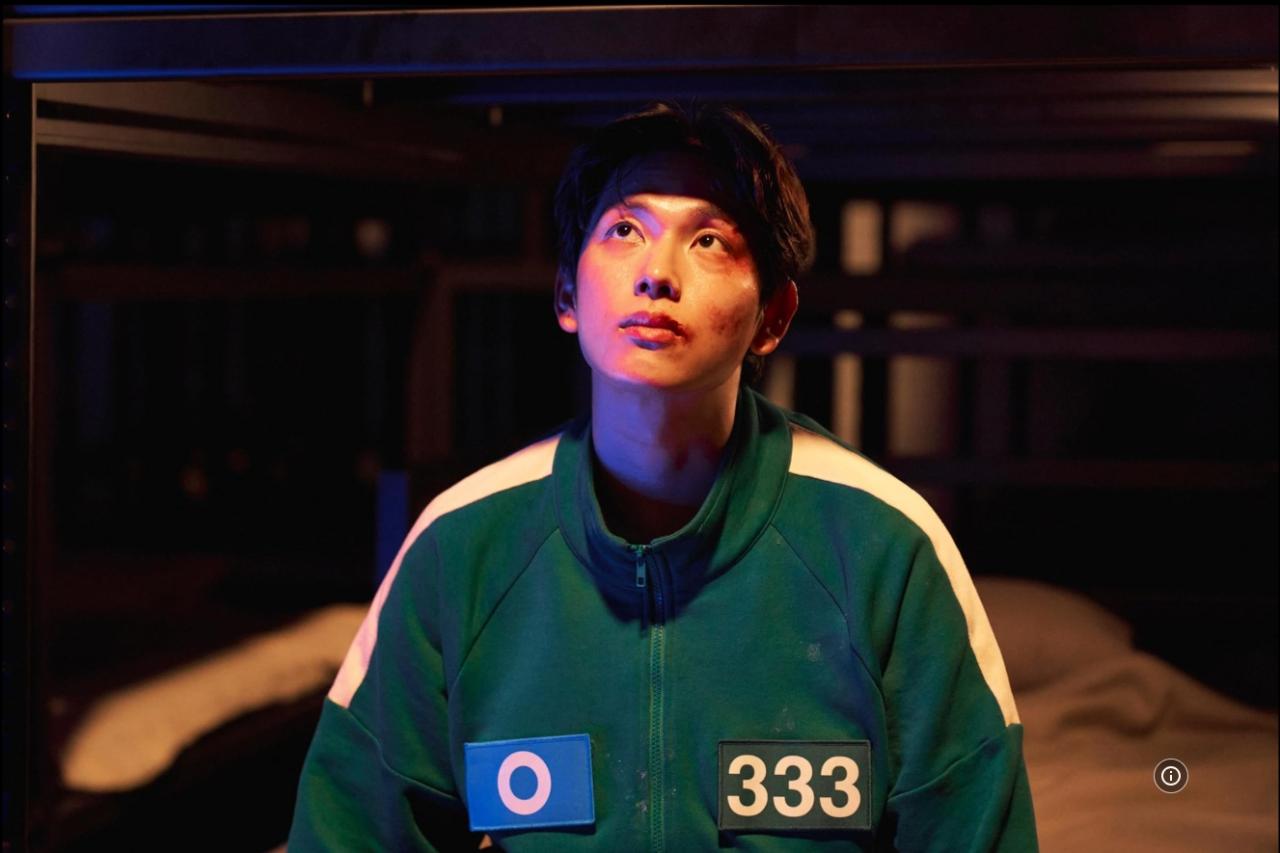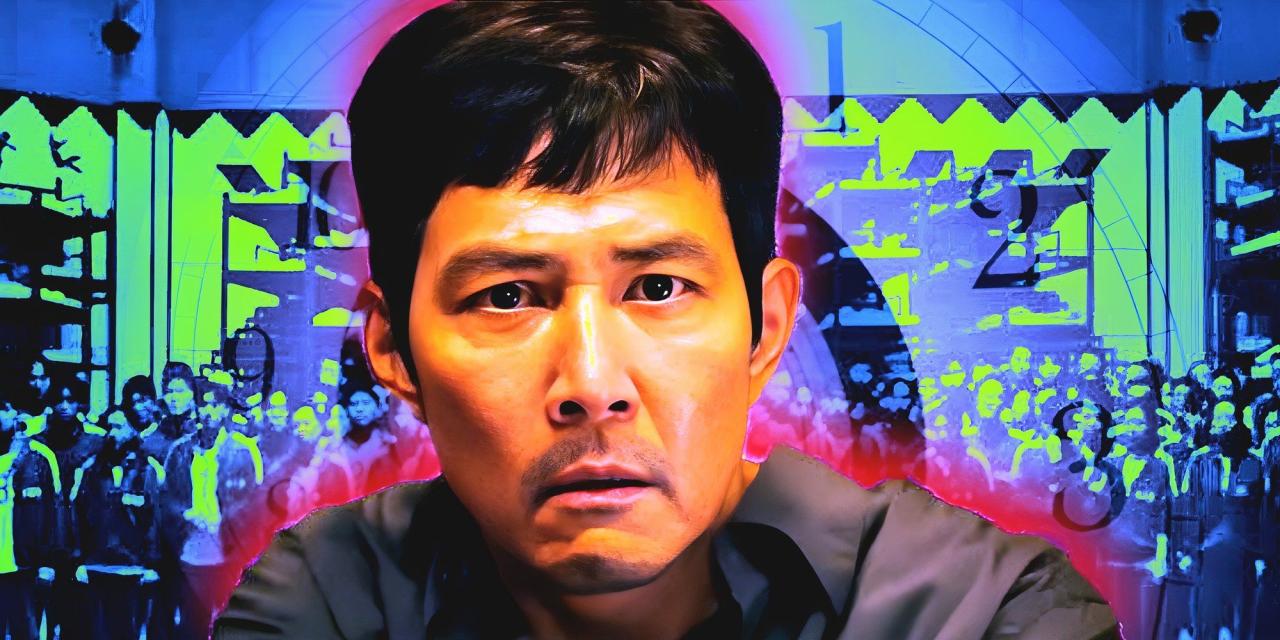Squid Game Histoire Vraie? The hit Netflix series sparked global conversations, but how much of its brutal reality reflects the harsh realities of South Korean society? This exploration delves into the socio-economic pressures fueling extreme debt, comparing the show’s depiction of desperation with the very real struggles faced by many. We’ll examine the parallels between Squid Game’s deadly games and the exploitative nature of some reality TV, exploring the psychological manipulation and societal commentary woven into the show’s narrative.
We’ll unpack the show’s potent symbolism and examine how it mirrors real-world issues like wealth inequality and class disparity. By comparing the fictional games to real-life high-stakes situations, we aim to understand the psychological impact of extreme pressure and the ethical considerations surrounding such intense competition. Prepare for a journey that blends captivating storytelling with insightful social analysis.
The Socioeconomic Realities Behind “Squid Game”
The global success of “Squid Game” sparked conversations beyond its thrilling plot. The show’s brutal depiction of debt-ridden individuals competing for survival highlighted the harsh realities faced by many, particularly in South Korea, where the series is set. This section delves into the socioeconomic conditions contributing to extreme debt, compares the show’s portrayal to reality, and examines available support systems.
Debt in South Korea: A Grim Reality, Squid game histoire vraie
South Korea’s highly competitive society, coupled with its emphasis on education and societal pressures, creates a breeding ground for immense financial strain. The cost of education, housing, and maintaining a socially acceptable lifestyle can be crippling. A significant portion of the population faces crippling debt, often stemming from education loans, business failures, or medical expenses. Vulnerable groups, including the elderly, single mothers, and those with disabilities, are disproportionately affected, facing limited resources and support networks.
For example, many South Koreans take on massive student loans to pursue higher education, only to find themselves burdened with repayment for years after graduation, especially if they are unable to secure high-paying jobs. Similarly, small business owners, often the backbone of the South Korean economy, frequently face financial ruin due to economic downturns or unexpected events. Medical expenses can also be devastating, with high healthcare costs leaving individuals deeply in debt.
“Squid Game” exaggerates the desperation, but the underlying pressure of debt and the lack of viable escape routes resonate with the struggles of many South Koreans. While the games are fictional, the desperation and the lengths people go to for survival are unfortunately relatable to the harsh realities of life under extreme financial pressure in the country.
So, you’re wondering about “Squid Game histoire vraie”? While the show’s fictional, its themes of desperation resonate. Think about the sheer scale of coordinated effort – it reminds me of the incredible spectacle of the china new year’s drone show , a breathtaking display of synchronized technology. Both highlight the power of organized groups, though with vastly different outcomes, bringing us back to the brutal reality depicted in “Squid Game histoire vraie”.
The South Korean government offers various debt relief programs, including debt restructuring and bankruptcy options. However, navigating these systems can be complex and challenging, often requiring professional assistance. Furthermore, the social stigma associated with debt can deter individuals from seeking help, exacerbating their financial problems.
The Allure and Ethics of Survival-Themed Entertainment

The popularity of survival-themed reality TV shows highlights a global fascination with competition, risk, and the human capacity to endure hardship. This section examines the common themes in such shows, compares them to “Squid Game,” and analyzes the ethical considerations involved.
Survival Shows: A Global Phenomenon

Shows like “Survivor,” “Big Brother,” and “The Circle” have captivated audiences worldwide, showcasing human behavior under pressure. These programs often feature challenges that test physical and mental resilience, with rewards and eliminations driving the narrative. The popularity stems from a combination of vicarious thrill, social dynamics, and the exploration of human nature under extreme circumstances.
Many elements of these shows mirror those in “Squid Game,” including the competitive nature of the games, the elimination of participants, and the psychological manipulation involved. However, the stakes are significantly higher in “Squid Game,” with life-or-death consequences replacing the prize money or social status offered in most reality TV shows.
Examples of real-life competitions with high stakes include extreme sports competitions, military training exercises, and even some professional challenges in fields like business or finance. While not directly comparable to “Squid Game’s” lethal games, these examples demonstrate the human capacity for risk-taking and the potential for physical and psychological harm in high-pressure situations.
Ethical Comparisons: “Squid Game” vs. Reality TV
| Aspect | “Squid Game” | Reality TV |
|---|---|---|
| Consequences of Failure | Death | Elimination, loss of prize money |
| Level of Physical Harm | Extreme, potentially fatal | Generally minimal, with safety precautions |
| Psychological Manipulation | Intense, manipulative, exploiting desperation | Present, but typically less extreme |
| Consent and Awareness | Coerced participation | Informed consent (generally) |
Social Commentary: Unveiling Inequality in “Squid Game”
Beyond the entertainment value, “Squid Game” serves as a powerful social commentary on wealth inequality and class disparity. This section explores the show’s use of symbolism and metaphor to convey its message and provides real-world parallels.
Wealth Inequality: A Mirrored Reality
“Squid Game” vividly depicts the chasm between the ultra-rich and the impoverished, highlighting the systemic inequalities that trap individuals in cycles of poverty and desperation. The games themselves represent a twisted metaphor for the ruthless competition inherent in capitalist societies, where the rules often favor the wealthy and powerful, leaving the vulnerable to exploitation and despair.
Real-world examples abound, from the widening gap between the richest and poorest in many countries to the systemic issues that perpetuate poverty and limit social mobility. The show’s depiction of the VIPs observing and betting on the players’ suffering reflects the detached indifference that many wealthy individuals display towards the plight of the poor.
The series masterfully uses symbolism and metaphor to convey its social message. The color palette, the stark contrast between the opulent VIP lounge and the squalid living conditions of the players, and the games themselves are all carefully crafted to amplify the themes of inequality and exploitation.
Real-World Parallels in “Squid Game”
- The Dalgona Candy Game: Represents the precariousness of life for the poor, where even small mistakes can have devastating consequences.
- The Tug-of-War Game: Symbolizes the power dynamics between different social classes, where the wealthy have a significant advantage.
- The Glass Stepping Stones Game: Illustrates the risks individuals take when faced with desperate circumstances, highlighting the lack of safety nets for the poor.
- The VIPs: Represent the wealthy elite who profit from the suffering of others, detached from the consequences of their actions.
The Psychology of Desperation and Manipulation
The psychological aspects of “Squid Game” are as compelling as its visual elements. This section examines the psychological pressures and manipulations employed in the games, comparing them to real-world scenarios and exploring the impact of extreme stress on decision-making.
Psychological Tactics and Real-World Parallels

The games in “Squid Game” are designed not only to be physically challenging but also to exploit the players’ psychological vulnerabilities. The organizers use a combination of manipulation, gaslighting, and deprivation to break down their resistance and control their behavior. These tactics mirror those used in cults, high-pressure sales environments, and even some forms of political propaganda.
Extreme stress and desperation significantly impair rational decision-making. Under immense pressure, individuals may resort to impulsive actions, sacrificing long-term goals for immediate survival. This is clearly illustrated in “Squid Game,” where players make difficult choices, often compromising their morality to stay alive.
So you’re into the “Squid Game histoire vraie” debate? It’s fascinating how real-life desperation can mirror the show’s premise. Think about the technology involved in surveillance – it’s not so far-fetched, and reminds me of the advanced capabilities of the magura v5 sea drone , which could easily be adapted for similar monitoring tasks. Ultimately, the “Squid Game histoire vraie” question highlights how easily fictional extremes can be grounded in current technological realities.
A Fictional Participant’s Psychological Journey
Imagine Ji-hoon, a young man burdened by debt and desperate for a way out. Initially, he’s driven by a desire for financial security, but as the games progress, his fear and desperation intensify. He witnesses brutality and betrayal, forcing him to question his morality. He experiences moments of resilience and camaraderie, but the constant threat of death erodes his sense of self, leaving him a shadow of his former self by the end, even if he manages to survive.
The Visual Language of Tension and Suspense: Squid Game Histoire Vraie
The visual elements of “Squid Game” are integral to its success, creating a distinct atmosphere of tension and suspense. This section analyzes the use of color, setting, and cinematography to evoke specific emotions and create a sense of unease.
So, you’re curious about “Squid Game histoire vraie”? While the show’s fictional, the desperation it portrays sadly reflects real-world struggles. Think about the scale of that; it’s a stark contrast to the dazzling spectacle of the china new year drone show 2049 , a breathtaking display of technology and artistry. Returning to “Squid Game histoire vraie,” the show’s impact lies in highlighting societal inequalities that fuel such extreme scenarios.
Visual Elements: Creating Atmosphere

The show’s color palette is carefully chosen to amplify the emotional impact. The vibrant pinks and greens of the game sets contrast starkly with the drab, muted tones of the players’ living quarters, highlighting the disparity between the artificial world of the games and the harsh reality of their lives. The cinematography utilizes close-ups and long shots to create both intimacy and a sense of isolation, enhancing the viewers’ emotional connection to the characters and their predicament.
The settings themselves—the brightly colored game sets juxtaposed with the bleak, impoverished surroundings—contribute significantly to the unsettling atmosphere. Real-world locations that could inspire similar visuals include abandoned amusement parks, stark industrial landscapes, and brightly colored yet decaying buildings, all evoking a sense of unease and disquiet.
Visual Description of a Key Scene
The scene where the players are lined up before the glass stepping stones game is visually striking. The players, dressed in their green tracksuits, are silhouetted against a stark, brightly lit backdrop. The intense focus on their faces, highlighted by the harsh lighting, reveals their fear and desperation. The contrast between the artificial brightness of the setting and the players’ grim expressions amplifies the tension, creating a palpable sense of foreboding.
Closure
Squid Game Histoire Vraie ultimately reveals a complex interplay between fiction and reality. While the show’s extreme violence is fictional, the underlying social and economic anxieties it portrays are painfully real for many. The series serves as a powerful commentary on societal pressures and the desperation that can drive individuals to extreme measures. By understanding the real-world issues reflected in Squid Game, we can gain a deeper appreciation of the show’s impact and its lasting relevance to global discussions about inequality and the human condition.
The games may be fictional, but the struggles are very much real.
Answers to Common Questions
Is Squid Game based on a true story?
No, Squid Game is not based on a single true story. However, it draws inspiration from real-world issues like debt in South Korea and the popularity of survival-themed reality TV shows.
What are the real-life equivalents of the games in Squid Game?
While the games themselves are fictional, the intense pressure and desperation they depict find parallels in high-stakes competitions, risky jobs, and even some aspects of extreme reality TV shows.
How accurate is Squid Game’s portrayal of debt in South Korea?
While exaggerated for dramatic effect, the show highlights the very real issue of high debt levels and financial struggles faced by many South Koreans, particularly vulnerable populations.
